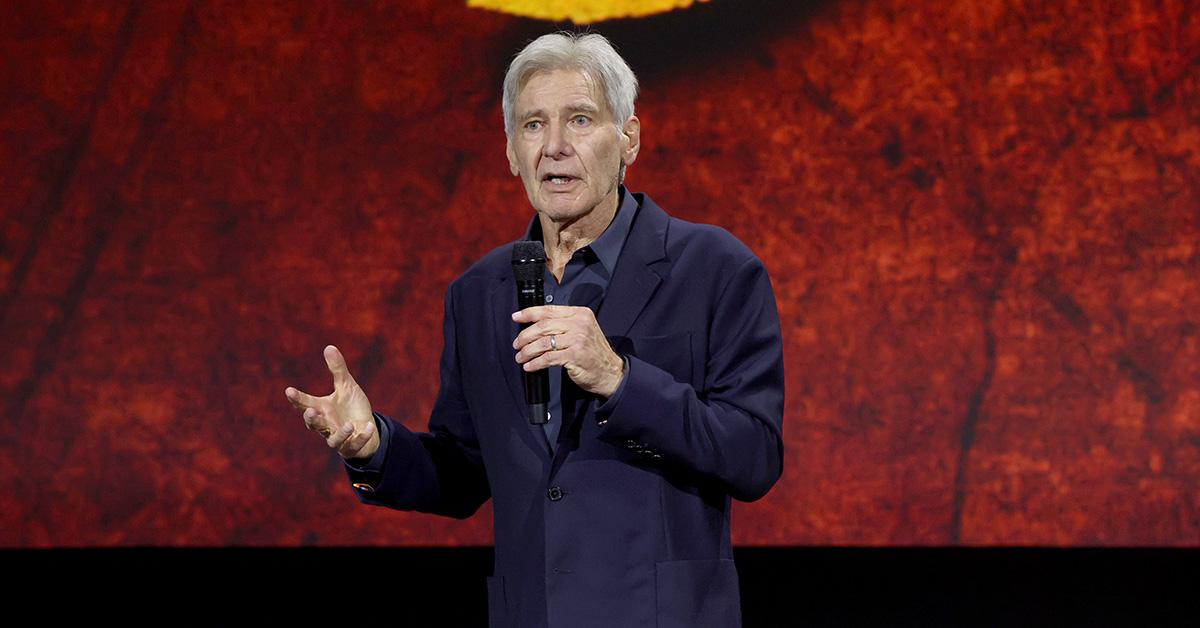Harrison Ford, one of Hollywood's most iconic actors, has recently been in the spotlight due to his battle with Parkinson's disease. The legendary star of films like "Star Wars" and "Indiana Jones" has faced numerous challenges throughout his career, but this health issue has brought a new dimension to his life. Fans worldwide are curious about how this condition affects the beloved actor and what steps he is taking to manage it.
As a cultural icon, Ford's journey with Parkinson's disease offers an opportunity to shed light on a condition that affects millions globally. Understanding his experience can provide insight into the challenges faced by individuals with Parkinson's and the resources available to manage it effectively.
This article delves into Harrison Ford's battle with Parkinson's disease, exploring his journey, the symptoms he faces, treatment options, and the broader implications of this condition. Whether you're a fan, a healthcare professional, or someone touched by Parkinson's, this article aims to provide valuable information and foster a deeper understanding.
Read also:Rispi Terzian 2024 A Comprehensive Guide To The Rising Star
Table of Contents
- Biography of Harrison Ford
- Overview of Parkinson's Disease
- Harrison Ford's Diagnosis
- Symptoms of Parkinson's Disease
- Management and Treatment Options
- Building a Support System
- Lifestyle Changes for Parkinson's Patients
- Current Research and Advances
- Raising Awareness for Parkinson's Disease
- Conclusion
Biography of Harrison Ford
Harrison Ford's Early Life
Harrison Ford was born on July 13, 1942, in Chicago, Illinois. Growing up, he developed a passion for acting and woodworking, which eventually became integral parts of his life. Ford's career in Hollywood began in the early 1970s, but it wasn't until his breakout roles in "Star Wars" and "Raiders of the Lost Ark" that he achieved global fame.
Harrison Ford's Career Milestones
Throughout his career, Ford has starred in some of the most iconic films in cinematic history. His portrayal of Han Solo in the "Star Wars" franchise and Indiana Jones in the "Indiana Jones" series cemented his status as a Hollywood legend. Despite his success, Ford remains humble and continues to work on meaningful projects that resonate with audiences worldwide.
Harrison Ford's Personal Life
Off-screen, Ford is known for his philanthropy and environmental activism. He is married to actress Calista Flockhart, and the couple is actively involved in various charitable causes. Below is a summary of Harrison Ford's personal information:
| Full Name | Harrison Ford |
|---|---|
| Date of Birth | July 13, 1942 |
| Place of Birth | Chicago, Illinois, USA |
| Spouse | Calista Flockhart |
| Children | Three |
Overview of Parkinson's Disease
Parkinson's disease is a progressive neurological disorder that affects movement and coordination. It occurs when neurons in the brain that produce dopamine, a chemical messenger essential for movement, begin to deteriorate. As the disease progresses, patients may experience tremors, stiffness, and difficulty with balance.
Globally, over 10 million people are living with Parkinson's disease, making it one of the most common neurodegenerative disorders. While the exact cause of Parkinson's remains unknown, researchers believe it is influenced by a combination of genetic and environmental factors.
Harrison Ford's Diagnosis
Harrison Ford was diagnosed with Parkinson's disease in 2022, at the age of 80. The diagnosis came as a surprise to many fans, but Ford has been open about his condition, using his platform to raise awareness and encourage others to seek help. His diagnosis highlights the importance of early detection and proactive management of the disease.
Read also:Fitchburg State University A Comprehensive Guide To Excellence In Higher Education
Despite the challenges, Ford continues to work and remain active in his personal and professional life. His resilience and determination serve as an inspiration to millions of people living with Parkinson's disease worldwide.
Symptoms of Parkinson's Disease
Primary Motor Symptoms
Parkinson's disease primarily affects motor functions, with symptoms including:
- Tremors: Involuntary shaking, often starting in the hands or fingers.
- Bradykinesia: Slowness of movement, making everyday tasks more difficult.
- Rigidity: Stiffness in the muscles, leading to limited range of motion.
- Postural Instability: Difficulty with balance and coordination.
Non-Motor Symptoms
In addition to motor symptoms, Parkinson's disease can also cause non-motor symptoms, such as:
- Depression and anxiety
- Sleep disturbances
- Cognitive impairment
- Loss of sense of smell
Management and Treatment Options
While there is no cure for Parkinson's disease, various treatments can help manage symptoms and improve quality of life. These include:
Medications
Medications such as Levodopa and Dopamine Agonists are commonly prescribed to help replenish dopamine levels in the brain. These drugs can significantly reduce tremors and improve motor function.
Therapies
Physical therapy, occupational therapy, and speech therapy are essential components of Parkinson's management. These therapies help patients maintain mobility, independence, and communication skills.
Surgical Options
In some cases, Deep Brain Stimulation (DBS) may be recommended for patients with severe symptoms. This procedure involves implanting electrodes in the brain to regulate abnormal impulses and improve motor control.
Building a Support System
Having a strong support system is crucial for individuals living with Parkinson's disease. Family, friends, and support groups can provide emotional and practical assistance, helping patients navigate the challenges of the condition.
Harrison Ford's openness about his diagnosis has encouraged others to seek support and connect with communities dedicated to Parkinson's awareness and advocacy. Building a network of understanding individuals can make a significant difference in managing the disease.
Lifestyle Changes for Parkinson's Patients
Making lifestyle changes can help individuals with Parkinson's disease maintain their health and well-being. These changes include:
- Regular exercise: Activities like walking, swimming, and yoga can improve strength and flexibility.
- Healthy diet: A balanced diet rich in fruits, vegetables, and whole grains can support overall health.
- Stress management: Techniques such as meditation and mindfulness can help reduce stress and improve mental health.
- Social engagement: Staying connected with friends and family can combat isolation and loneliness.
Current Research and Advances
Research into Parkinson's disease is ongoing, with scientists exploring new treatments and therapies to improve patient outcomes. Recent advancements include:
- Gene therapy: Researchers are investigating ways to repair or replace faulty genes associated with Parkinson's.
- Stem cell therapy: This innovative approach aims to regenerate damaged neurons in the brain.
- Wearable technology: Devices that monitor symptoms and provide real-time data are being developed to enhance treatment.
These breakthroughs offer hope for the future and underscore the importance of continued research and investment in Parkinson's studies.
Raising Awareness for Parkinson's Disease
Harrison Ford's diagnosis has brought renewed attention to Parkinson's disease, highlighting the need for greater awareness and understanding. By sharing his story, Ford has encouraged others to speak openly about their experiences and seek support.
Organizations like the Michael J. Fox Foundation and the Parkinson's Foundation are leading efforts to educate the public and fund research into the disease. These initiatives aim to improve the lives of those affected by Parkinson's and ultimately find a cure.
Conclusion
Harrison Ford's battle with Parkinson's disease is a testament to his resilience and determination. Despite the challenges posed by this condition, Ford continues to inspire millions with his work and advocacy. Understanding Parkinson's disease and its impact on individuals like Ford is crucial for fostering empathy and support within our communities.
We encourage readers to share this article, engage in discussions about Parkinson's disease, and support organizations dedicated to advancing research and treatment. Together, we can make a difference in the lives of those affected by this condition.


